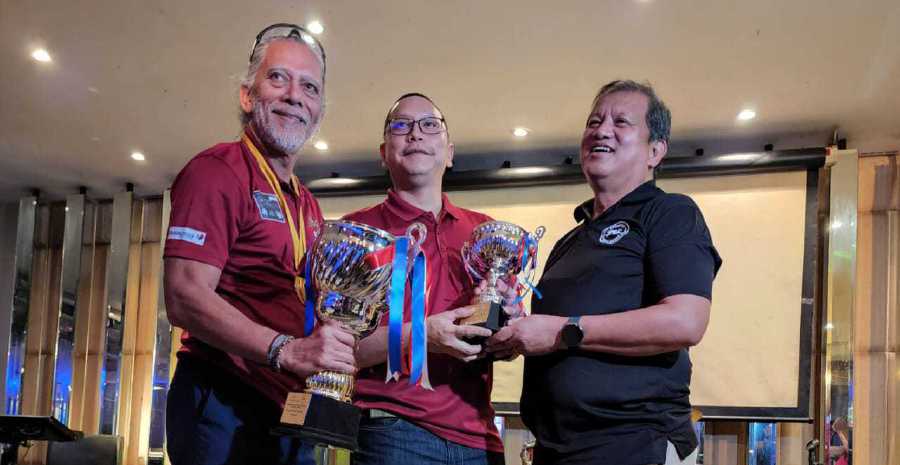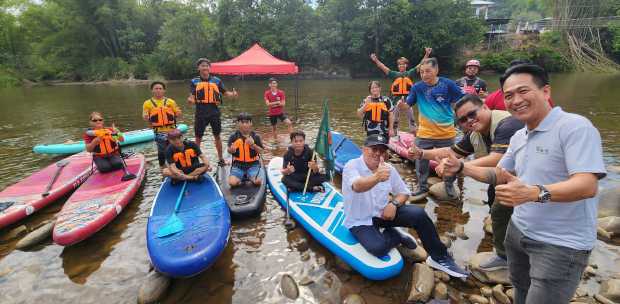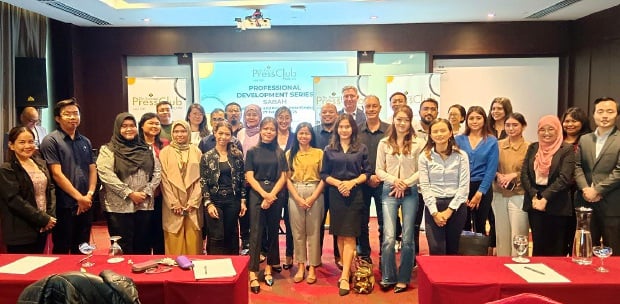The sight and sound of the soothing gushing river under a blue sky canopy was enough to take one's breath away. I was soaking in the wonders of Sungai Kiulu while waiting at the activity centre, for some team members who had gone white water rafting.
So, this is what community-based tourism feels like, I thought to myself. Away from the hustle and bustle of the concrete jungle. Kiulu, a picturesque place (it's a sub-district under the Tuaran district) tucked in the foothills of Mount Kinabalu, Sabah, is synonymous with responsible tourism.
Responsible tourism is about making better places for both the locals and visitors, so both tourists and locals take responsibility in ensuring sustainability in tourism.
It was my first trip to Sabah, the second largest state in Malaysia that is revered for its seafood, wildlife, rainforests and coral reefs. I was part of an entourage of media practitioners who went there recently, at the invitation of Sabah State Assistant Tourism, Culture and Environment Minister Datuk Joniston Bangkuai, who is also Kiulu assemblyman.
Called the "Sabah Media/National Press Club Goodwill Games 2022", it was an inaugural event that saw media friends from the Peninsula and East Malaysia competing against one another in football, bowling, darts and pool.
As much as anyone would want to lure as many tourists to a destination, care is needed to ensure the number of visitors do not overwhelm the natural resources of the place.
Besides responsible tourism and community-based tourism (CBT), Sabah has various types of tourism --- nature-based tourism, eco-tourism, marine tourism, sports tourism, volunteer tourism, war and heritage tourism, festival tourism, agro-tourism, among others.
Many want to emulate Sabah's success in Kiulu and Kedamaian, the two areas identified as pilot projects for rural community-based tourism.
It was learnt that Kedamaian generated RM2.57mil in tourist revenue with 217,000 visitors, while Kiulu raked in RM5.54mil with 54,000 visitors in the year 2019. In the same year, Kadamaian recorded an average of 4,500 visitors a month while Kiulu saw an average of 18,083 visitors a month. Both states offered white water rafting activities which were a hit with visitors.
CBT, namely, homestay in Sabah started in the year 2000, mooted by the Tourism, Arts and Culture Ministry (Motac) in collaboration with the Ministry of Tourism, Culture and Environment Sabah (KePKAS) as the facilitator.
Plans are now afoot to replicate the success of Kiulu and Kedamaian throughout Sabah and unite all rural communities by 2025. Rural tourism is a form of tourism which take place in the rural settlements, and jobs and income are generated for the local folk.
All the CBT destinations, comprising 27 districts are all in compliance with the ASEAN Standard Community Based Tourism blueprint. Some 50 to 100 homestay projects are targeted by 2025.
The opportunities to groom settlements for CBT are aplenty, namely, discovering untapped rural tourism products, finding more products for tourism players to sell. It can be a second source of income after agriculture. There will be community empowerment and interested companies can choose to have their corporate social responsibility programmes here. It is also a step toward the eradication of poverty.
Joniston spoke about the villagers' resistance to change, and how the relevant local authorities and Sabah Tourism Board (STB) had to win them over by making the villagers understand how rural and community-based tourism can help the economy and the community.
Kiulu and Kedamaian were both picked to be pilot projects for rural tourism in the year 2014.
"Kiulu is basically an agriculture area but now they have an alternative source of income which is eco-tourism. The villagers now know how to value the need to take care of the environment. If the river is dirty and not well-maintained, they know no tourists will come," Joniston said.
He said the first step was to slowly change the community mindset. At the beginning were also issues with communication skills, insufficient financial support, high dependency attitude, lack of tourism awareness and community readiness, lack of tourism infrastructure, and a lack of mentoring programmes.
But after years of tireless effort, it looks like Sabah has all the right ingredients and found the recipe for success, which is, the need to strike a balance between environment, social and economic development.
For others who want to adopt Sabah's business model, must also adopt the right mindset. Go by the book. Comply with all the standard guidelines. While one aims to profit from the venture, one should not destroy nature in the process, as incurring Nature's wrath will only summon floods, landslides and other natural disasters.
Progress is good for any economy, but always embrace responsible tourism for the good of all.
When Covid-19 hit Malaysia, the STB had also turned to social media by collaborating with social media influencers. The local communities were also trained to turn to digital marketing for promotion, and online presentations were made to tour operators.
Kiulu is a sweet haven with a catchy tagline to match. "If adventure is your passion, Kiulu is your destination."





